Speaking at a panel session on food investment on Sunday, Rob Trice - founder of Better Food Ventures, which invests in companies that apply IT to the food and agriculture sectors - said: “I think we are in a bubble.
“Trying to feed 9bn people by 2050 is a false design challenge. The focus [for companies interested in the intersection between food and technology] should be on how we can inject more agility to the food system now.”
Ryan Caldbeck, co-founder and CEO of equity-based crowdfunding expert CircleUp, added that the amounts of money being pumped into some food companies by Silicon Valley based private equity funds also made him wonder whether things were ‘over-heating’ a little and whether expectations needed to be better managed.
Managing expectations
Some investors, he claimed, were applying valuation models based on the tech industry to the food industry, which was “scary”, as it is extremely rare that a food company will create and then completely dominate a food category in the way that Uber has with the taxi market, or OpenTable has with restaurant booking.
“It scares me when people value these food companies wrongly. There won’t be a winner takes all in the mayo or coffee industry. This doesn’t mean that these are not great companies, but the valuations just may be out of line. There will not be a world where you walk into Safeway or Costco and they are only selling one type of coffee. So it’s just a case of managing expectations.”
He told FoodNavigator-USA after the session: "Why does this matter? When you put a very high valuation on a company and the company can't live up to it, it can kill your company. A lot of these food companies don't need to raise tens of millions of dollars. Better to put in $500,000 into a company that create a $200m business than pouring millions into a company that is never going to be a billion dollar business."
Meanwhile, Kapil Desai, an analyst with New York based VC firm Catalyst Investors, said that a “disproportionate amount of funding” was going into firms in a limited number of food/tech areas, notably food delivery, meal kits and subscription snacking, which might not deliver the kind of returns that investors hoped, while less sexy, but potentially more lucrative and scalable opportunities in areas such as CRM and ERP systems for restaurants were being ignored.
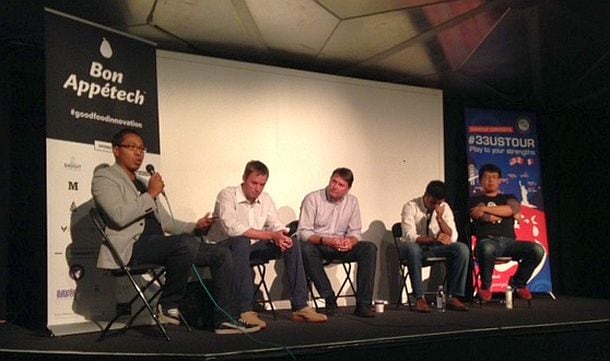
Super-sexy, but not right for the market
Aaron Magenheim, CEO of AgTech Insight LLC, which brings farmers/growers together with technology companies, said he was seeing similar trends in his field, whereby start-ups were pitching “super sexy” new ideas and technologies, “without an understanding of what the industry actually needs”.
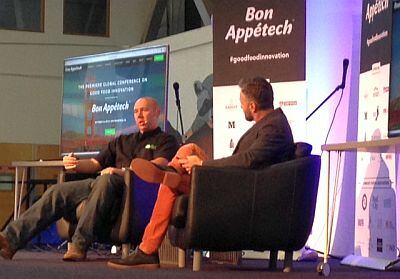
And they are in turn seeking funding from “Silicon Valley people” that lack a basic understanding of how growers operate and seem to believe they might see a return from advanced drone technologies with cutting edge sensors and imaging capabilities within two years, when for many of the technologies in question, 7-10 years is probably a more realistic time frame, he said.
Echoing Desai’s point, he said start-ups would be better off focusing on more basic tools enabling small and medium-sized farmers to convert from paper to digital, or measure and monitor water or fertilizer use.
He added: “Current water reporting is thought to be only 50% accurate. And you don’t know what you can’t measure. If you don’t even know how much water you’re using, why would you need a drone?”
How are big food companies’ investment strategies changing?
However, if your mission is to build a successful new packaged food and beverage brand, there are far more funding options available to you today than there were even five years ago, said CircleUp’s Caldbeck, noting that growth in the industry is increasingly being driven by smaller, more entrepreneurial brands.
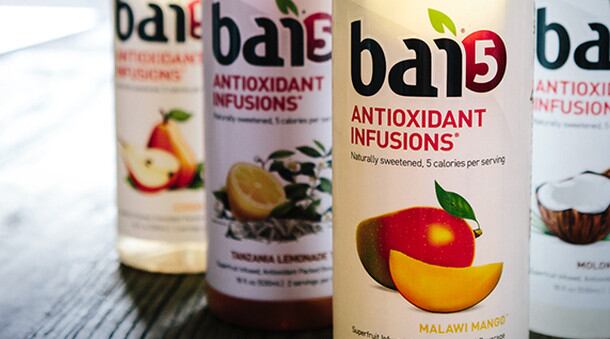
“Millennials are not buying the brands and products that their parents bought.”
As many large food companies are struggling to generate growth from legacy brands, and pumping all available cash into "marketing brands that haven't changed for 40 years" rather than developing new ones in-house, they are increasingly buying in innovation from smaller, sexier brands in fast-growing parts of the market, he said.
However, if the strategy until relatively recently was M&A - simply buying successful companies outright (KRAVE, So Delicious, Gardein, Dave’s Killer Bread) - strategics are increasingly considering minority investments, or placing a larger number of smaller bets at an earlier stage, he told FoodNavigator-USA.
For example, Dr Pepper recently invested $15m in Bai Brands; Coca-Cola invested $90m in Suja, and WhiteWave Foods invested $3m in Daily Greens.
"It’s moved from just buying, to buying and making minority investments," he added.
Innovation in action
Some brands and companies that caught our eye at Bon Appétech included:

foodie CPG: The brainchild of Damon Palame, foodie CPG compiles, organizes, and analyzes data from distributors and retailers for CPG brands with revenues of $2-10m to help them identify missed opportunities and turn data into actionable information. (So when Sprouts says your product will be rolled out to all of its 200+ stores, foodie CPG could help you discover you’re actually only in 180, and tell you which 20 your sales team/broker needs to talk to your distributor about).
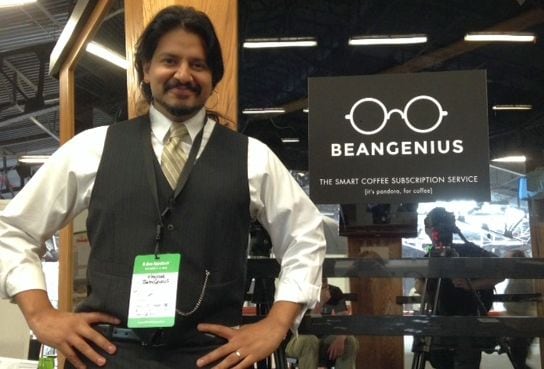
BeanGenius: If you like discovering new things, and get intimidated in the coffee aisle, BeanGenius mails out sample packs of different kinds of coffees, gets your feedback, and then tailors its monthly or two-weekly deliveries – sourced from a network of roasters – to meet your taste preferences.
Rather than bailing out and buying direct once users find a brand they like, said founder Krishna Gupta, users are motivated to stay on and make new discoveries. As more people are looking to give experiences as well as products as presents, a big chunk of the business is also coming from gifting, he added.
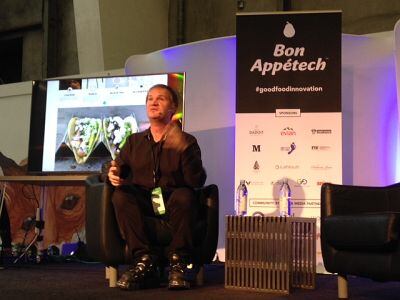
IBM Chef Watson: Powered by IBM Watson, the emotionally intelligent super-computer that beat human rivals at Jeopardy, IBM Chef Watson is now being employed to help Millennials decide what to have for dinner tonight by offering up novel recipe suggestions based on its understanding of flavor science.

Algama is an award-winning French start-up that has developed a functional beverage (Springwave) containing the nutrient-dense blue-green microalgae spirulina,and egg-free spreads (Mama Poule) using algae protein.

Zipongo: Like a personal life coach and RD available around the clock, Zipongo asks you to fill in an online diet & lifestyle questionnaire, and then serves up recipe options, lunch recommendations, tailored meal plans, shopping lists, and the latest deals and discounts at neighboring stores, tailored to your individual needs, desires and goals.
